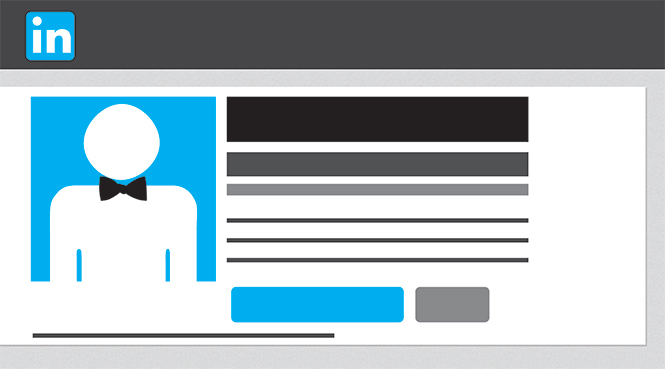Personal branding and social media: A user’s guide
Personal branding is not just for celebrities with out of-the-box personalities, such as Lady Gaga and Kesha “Ke$ha” Sebert, or CEOs and business gurus. Creating a unique identity and online presence through personal branding is a key to success for students who want to market themselves to potential employers.
“It’s a way to find your passion and tell your story,” said Stefanie Moore, assistant journalism and mass communication professor. “It’s a way to define what you stand for and what your promise is.”
Moore said that personal branding is all about using your story to develop connections and build relationships. Marketing oneself is just as important as marketing a business, brand or product.
Colin Campbell, assistant professor of marketing and entrepreneurship, said he relates personal branding to corporate branding as well.
“A brand is people being aware of the brand and having particular associations with it, so social media branding would be very similar,” Campbell said. “You are basically getting your awareness up online and developing associations with different characteristics that you might care about. So if you’re into food, you might want to associate yourself with food, create reviews and associate with other food critics and food bloggers online. The awareness would come from the number of followers or fans that you have.”
When a student begins to develop a personal brand, he or she needs to start with the basics, Moore said.
“We don’t want to dive and leave things stagnant, we don’t want to go out and put all of our eggs in every basket,” Moore said. “We need to identify our objectives first and that will determine what platforms we will be using. So depending on the niche, your passion or interest, that will take you to the channel where your folks are.”
Blogs are a way students can begin to identify and develop a personal brand, Moore said. She said that once a niche is found, students can then begin to develop valuable content that showcases skills and personality through text or photography.
“Visuals are so important in our online world, so whether it is text or visuals, all of these things kind of paint a picture of us online,” Moore said. “You can do that through a blog, an Instagram channel or a Pinterest account. All of these things reflect who you are.”
Senior organizational communication major Allison Kurz said she uses Facebook, Twitter and Instagram to create her personal brand and LinkedIn for a more professional brand. While Kurz said she knows how to create a personal brand, she also said she thinks creating an identity online is important. She said, though, that an online identity can be misleading, especially for students who don’t know what to post.
“I think the most confusing part about branding on social media is that you can make yourself appear any way you want,” Kurz said. “You can present yourself with false characteristics. I think now that I am more mature, I have realized what is appropriate and what is not appropriate to post.”
In a study conducted by CareerBuilder.com in 2012, 37 percent of employers use social media to screen potential candidates before hiring them. Of the 37 percent, 65 percent of employers use social media to see if the candidate is portraying him or herself in a professional manner. A third of the employers who scan a candidate’s social media presences said they have found content online that has prevented them from hiring a candidate.
“We hear [from] employers all the time that the first step is to either Google somebody or do a search on somebody,” Moore said. “If you’re not out there online, your competitor, who may have a very solid profile and very positive personal online brand, is probably going to be the one that gets a job.”
Kurz said she doesn’t think it is important for employers to look at social media, but it is important for students to be prepared for it. Kurz uses social media to network and create her brand appropriately, but Campbell said there is a key difference between networking and personal branding.
“Networking tends to be more about other people: meeting people and making connections that are going to be valuable to you,” Campbell said.
“Branding is more about you and how you are portrayed online and seen by the rest of the world.”
Moore said there is a difference, but branding can help create connections.
“Your personal branding [is] more about you,” Moore said. “Sharing your story and marketing yourself and networking then follows. You are creating those communities online based on your brand.”
Moore said that it is critical to start developing a brand early and using that brand to develop connections before graduating. These connections will prove to be beneficial for all students before leaving college.
“You don’t want to start too late with LinkedIn. You can start while you’re in college, even though it is more of a professional network,” Moore said.
“These folks that you’re working with now are going to graduate, too, and going to become your colleagues, so it’s good to have that network already established. And then, of course, professors and internship employers. So all of those people are very critical to have in your network before you leave.”
If you are interested in how to use social media to its full advantage, Moore teaches a Social Media Strategies class that addresses many personal branding topics and is designed to help students understand and use social media in a critical and strategic way to enhance their lives and careers.
Contact Lindsay Miller at [email protected].


